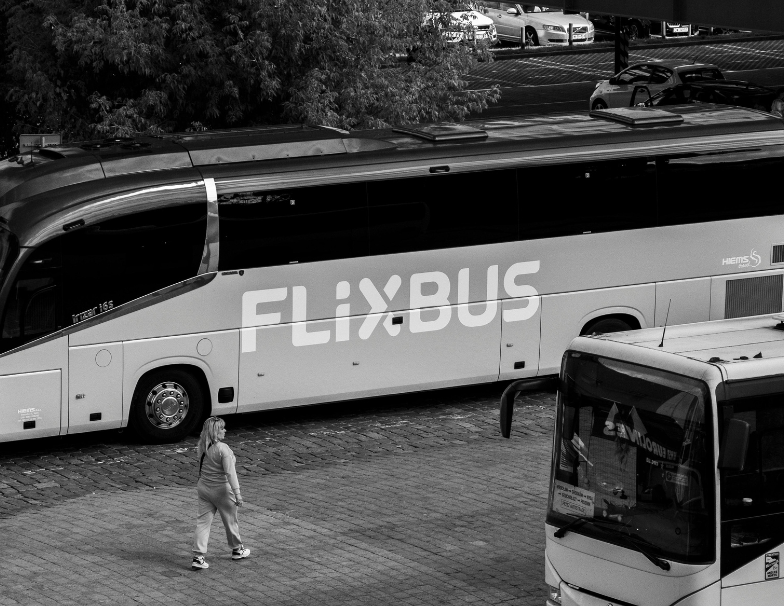Top Off Site Planning Tips for Successful Team Strategy Sessions

Off site planning is crucial for team success. This guide explains how to set objectives, choose a location, and engage your team effectively during an offsite event.
Key Takeaways
- Effective offsite planning fosters team building, enhances focus, and boosts productivity by providing a distraction-free environment.
- Establishing clear objectives and structured agendas is essential for maximizing engagement and productive discussions during offsite meetings.
- Engaging team-building activities and proper logistics management are critical components that ensure a successful and enjoyable offsite experience.
Understanding Offsite Planning

Effective offsite planning goes beyond just changing the scenery; it’s about creating an environment that fosters team building and performance. Stepping away from the usual office setting allows teams to focus on big-picture strategies and interpersonal connections, often neglected amid daily tasks. An offsite meeting can have a transformational effect on your organization, helping to reframe problems and ignite innovative solutions. If you want to enhance this experience, consider how to plan a team offsite effectively.
High-impact teams particularly benefit from offsite meetings. These gatherings are crucial for building a positive company culture, increasing trust, and strengthening teamwork. Despite some initial skepticism, many executives find that the benefits of a team retreat far outweigh the doubts. The focused environment of an offsite meeting encourages better working relationships and higher engagement, leading to lower absenteeism and increased productivity. Additionally, team offsites can further enhance these outcomes.
Moreover, in-person meetings in a new environment can significantly improve focus and participation. Taking a break from the usual office setting boosts employee morale and helps teams work on important matters away from everyday disruptions. Ultimately, effective offsite planning creates positive and long-lasting impacts, making it an invaluable tool for any organization.
Setting Clear Objectives for Your Offsite Meeting
Establishing clear goals is a critical aspect of planning an offsite meeting. These objectives guide the entire planning process, ensuring that every detail aligns with the desired outcomes. When objectives are clearly defined, team alignment and focus are significantly enhanced, making discussions during the offsite meeting more productive.
A well-structured agenda that reflects these objectives is essential. It allows for better time management and ensures that every topic gets the attention it deserves. This structured approach not only helps in measuring the success of the offsite event but also fosters actionable follow-up plans. By setting specific tasks and goals, you can create a clear agenda for your team to follow, both during and after the offsite.
In addition to setting goals, it’s important to communicate these objectives to your team ahead of time. This ensures that everyone is on the same page and understands the purpose of the offsite. Clear communication of the agenda and expected outcomes helps in creating a focused environment where team members can contribute meaningfully, leading to a successful offsite.
Choosing the Perfect Offsite Location

Choosing the perfect offsite location is crucial for the success of your team offsite. Understanding your team’s preferences can significantly influence the location choice, ensuring that the chosen venue aligns with the intended vibe of the offsite. A location that matches the overall goals of the offsite can enhance team engagement and make the event more enjoyable.
Accessibility is crucial. When selecting a venue, consider the following:
- Choose a location that’s convenient for all participants, taking into account travel time and transportation options.
- Opt for a venue that is easy to reach to avoid frustrating employees and diminishing morale.
- Select a venue during off-peak seasons to benefit from better rates and more availability, making the planning process smoother and more cost-effective.
Before finalizing a venue, a site visit is essential. This allows you to confirm that the venue meets expectations and is conducive to your offsite goals. Factors like natural light, outdoor views, and potential distractions should be evaluated during the site visit to ensure a productive and enjoyable environment for your team. Carefully choosing the location creates the perfect setting for a successful offsite.
Engaging Team Building Activities

Engaging team-building activities are the heartbeat of a successful team offsite. These activities inspire new perspectives, enhance collaboration, and strengthen employee connections. Participating in high-energy challenges and interactive sessions helps dissolve hierarchical barriers, fostering better communication and collaboration, ultimately contributing to team development.
Think about activities like:
- Group game nights
- Problem-solving challenges
- Outdoor exercises
- Friendly competitions that can inspire fun new ideas
Tailoring these activities to align with company goals focuses on helping teams work effectively under stress and enhance their problem-solving abilities, guided by an executive coach, while also considering the team’s unique dynamics within organizations, instilling a sense of hope in an effective team.
Incorporating a mix of activities helps manage emotions and energy levels, contributing to better team dynamics and a more effective offsite.
Ensuring Proper Logistics Management
Proper logistics management ensures your team offsite runs smoothly. Coordinated transportation is essential to ensure participants arrive on time and that the event remains on schedule. Special transportation options for participants with mobility challenges should also be arranged to ensure an inclusive experience for all events.
Selecting accommodations close to the event venue can significantly reduce travel time and enhance participant engagement. Booking a block of rooms at a single hotel offers several benefits:
- Simplifies logistics
- Encourages participants to stay in close proximity to each other
- Promotes team cohesion
- Enhances networking opportunities
Effective logistics planning ensures that attendees experience minimal stress and distractions, allowing them to focus on the strategic objectives of the offsite.
Facilitating Effective Collaboration

Facilitating effective collaboration during your effective team offsite is essential for achieving your objectives. To ensure a productive event:
- Clearly communicate ground rules and expected outcomes to set the stage.
- Once goals are understood, tailor the offsite activities and agenda accordingly.
- Ensure relevance and encourage active participation from all team members.
To enhance interaction and teamwork during an offsite, consider the following:
- Choose an offsite location that can encourage collaboration.
- Incorporate team-building activities to break down barriers, boost morale, and foster meaningful connections.
- Set up the room to avoid hierarchy, ensuring titles don’t interfere with honest conversations.
- Listen to all participants to increase engagement from quieter voices.
Effective facilitation involves clear ground rules, turn-taking, and role modeling by leaders to encourage participation. Post-event follow-up is crucial for solidifying connections and gathering important feedback from attendees, ensuring that the benefits of the offsite extend beyond the event itself.
Providing Quality Food and Beverages
Providing quality food and beverages is a detail that can significantly impact the success of your corporate event team offsite. Well-planned meals enhance participants’ energy and focus, which is crucial for maintaining engagement during the event. Nutritious food choices can prevent post-lunch fatigue, helping sustain attention during strategic discussions.
Dietary accommodations such as vegetarian, vegan, gluten-free, and dairy-free options should be considered to ensure all participants are catered for. Avoiding heavy food and alcohol prevents detracting from the team’s overall focus. Instead, provide hydrating options like water, caffeine-free drinks, and healthy sugars from fruits, cookies, or chocolate.
Leveraging Technology for Seamless Experience
Leveraging technology can create a seamless experience for your team offsite, even in the context of remote work. Advanced AI-powered tools significantly enhance engagement during hybrid meetings, making them more dynamic and interactive. Features like digital whiteboards and breakout rooms facilitate more effective discussions, allowing for better collaboration.
A reliable internet connection with sufficient bandwidth is necessary to ensure clear audio and video quality for remote participants. Testing technical equipment before meetings can prevent disruptions related to audio lag or connectivity issues, ensuring a smooth and productive event.
Curated venues often come with advanced technology and support, allowing teams to focus more on their objectives rather than logistical issues in recent years, which is nice to have in the available space.
Post-Event Follow-Up and Action Items
Post-event follow-up is crucial for maintaining engagement and ensuring that the insights gained during the offsite are implemented. Setting a follow-up meeting one week after the offsite helps discuss progress and any action items. Thank-you emails play a key role in expressing appreciation and fostering trust with event participants.
Essential documentation, including photos, insights, decisions, and responsibilities gathered during the event, should be shared with attendees. Developing a follow-up plan during the offsite and communicating clear action items, details, and next steps ensure accountability and implementation of ideas.
Utilizing various communication channels can enhance the effectiveness of post-event follow-ups.
Cost Management and Budgeting
Effective cost management and budgeting are crucial for ensuring that an offsite meeting achieves its goals without overspending. Setting clear objectives for the offsite will guide both budget allocation and financial decision-making. Choosing the right venue can significantly impact your budget, so it’s important to consider costs versus the venue’s alignment with your objectives.
Incorporating team-building activities can save money by fostering collaboration and reducing the need for extensive follow-up. Proper logistics management can also lead to reduced costs by ensuring efficient use of resources like transport and accommodation. Leveraging technology can uncover potential discounts and optimize your overall budget for offsite planning.
Key strategies include:
- Incorporating team-building activities to foster collaboration and reduce follow-up needs
- Managing logistics properly to ensure efficient use of resources such as transport and accommodation
- Leveraging technology to find potential discounts and optimize the overall budget
How Offsite Simplifies Planning

Offsite simplifies the planning process by:
- Offering curated venues and vendors globally, making it easier to find the perfect location for your team offsite.
- Providing end-to-end retreat planning services at a flat, per-person rate with expert guidance to ensure a seamless experience.
- Allowing users to save up to 50% on retail rates through VIP service, concessions, and contract terms.
Offsite partners with thousands of premier offsite venues globally, which allows users to benefit from competitive pricing and exclusive deals. The platform simplifies and enhances offsite planning by managing logistics and activities, allowing teams to focus on connection instead of coordination during the next offsite company offsite.
Summary
Mastering offsite planning involves setting clear objectives, choosing the right location, engaging in team-building activities, and ensuring proper logistics and cost management. Leveraging technology and following up after the event are also crucial for a successful offsite. By implementing these tips, you can create a memorable and impactful team offsite that fosters collaboration and drives performance.
FAQs
- What is the purpose of offsite planning?
The purpose of offsite planning is to improve team cohesion and performance by concentrating on overarching strategies and fostering interpersonal relationships. This approach can lead to more effective collaboration and innovative solutions.
- How can I set clear objectives for my offsite meeting?
Clearly define the objectives of your offsite meeting to guide the planning process, enhance team alignment, and enable you to measure the event's success effectively. This clarity will ensure that everyone is focused and working towards the same goals.
- What should I consider when choosing an offsite location?
When choosing an offsite location, prioritize your team's preferences, venue ambiance, and accessibility, and consider booking during off-peak seasons. A site visit is crucial to ensure the venue aligns with your expectations.
- How important are team-building activities during an offsite?
Team-building activities are essential during an offsite, as they foster collaboration and strengthen connections among team members, ultimately enhancing overall effectiveness.
You may also like
Unique spaces for your next offsite
Find distinctive venues for your upcoming corporate retreat.
Stay Updated with Our Insights
Get exclusive content and valuable updates directly to you.







